1520s Ulrich Zwingli and the Switzerland Reformation
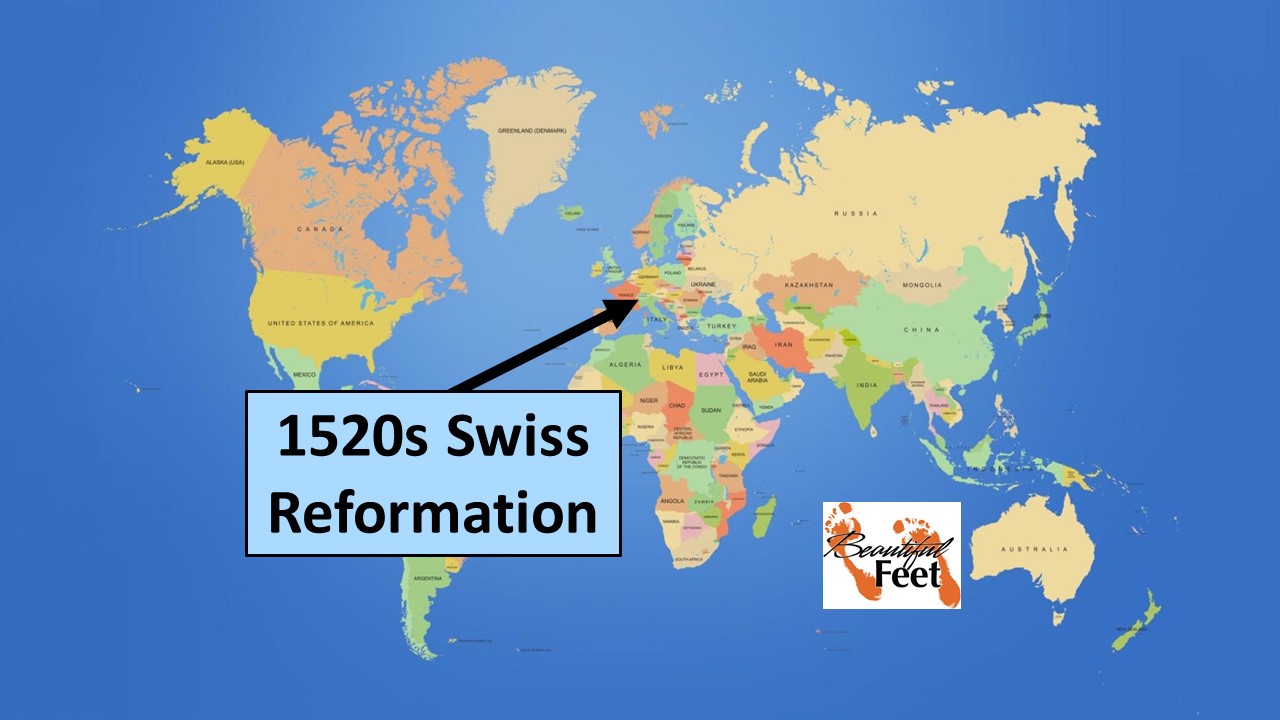
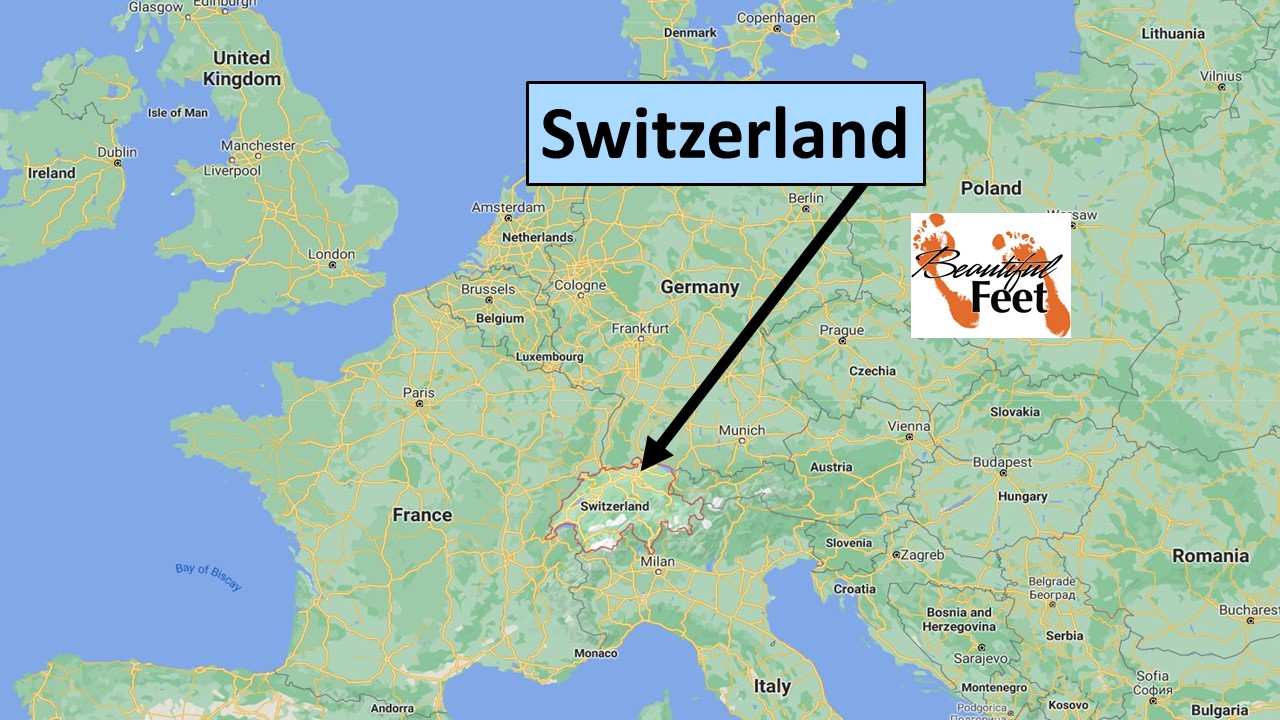
Prerequisite Reading
We strongly recommend reading of our post “The Need for the Protestant Reformation” prior to reading this or any of the other Reformation posts we have written.

Catholic Priest
Ulrich Zwingli
1520s Geneva Reformation
Ulrich (Huldrych) Zwingli (1484-1531) was a Swiss Protestant Reformer and a contemporary of the German Reformer, Martin Luther. He is often referred to as the “Third Man of the Reformation.” This title indicates that even though he contributed greatly to the reform movement against the dominant Roman Catholic Church, his influence in history was less impactful than that of Martin Luther and John Calvin.
Smoked Sausage Conflict
During Lent of 1522, Zwingli and about a dozen others broke the Catholic fasting tradition by consuming smoked sausage in public. This created a disturbance immortalized as the Affair of the Sausages. Zwingli defended his actions in a sermon, showing that the Bible makes no mention of this type of a fast.
This was but one of many stances Zwingli took against unbiblical practices and laws that the Catholic Church had in place to control their subjects.
Ulrich Zwingli
► Born January 1, 1484, in Wildhaus, Switzerland
► Education at the Swiss University of Basel and Austrian University of Vienna
► Ordained as a Catholic priest in 1506
► Served as pastor in Glarus and Einsiendien
► In 1519 he became a priest of Grossmunster church in Zurich where he began to preach his reformation ideas in opposition to traditional Catholic teachings.
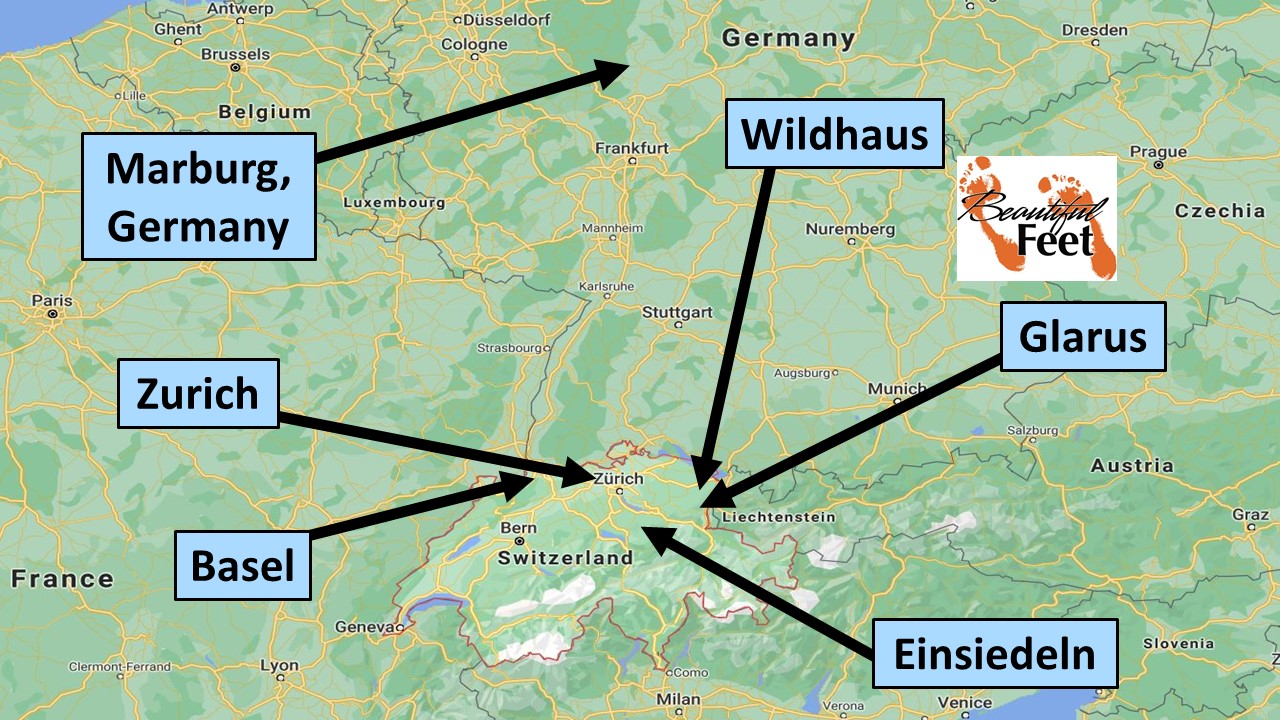
Locations mentioned in this story
Zwingli’s 67 Articles
Similar to Martin Luther’s 95 Theses, which was a list of doctrinal challenges presented to the Catholic Church, Zwingli also had his list of challenges which has been titled Zwingli’s 67 Articles.
Some of the Objections Zwingli Had against the Catholic Church
► There is no biblical justification for the office of a pope.
► The pope has no power to excommunicate people.
► Christ is the only mediator between God and people. Priests have no mediatorial role.
► The Lord’s Supper was a memorial, and Christ was sacrificed only one time.
► The Bible is silent on the veneration of saints.
► Many Catholic saints have legendary stories that need to be expunged.
► He rejected the teaching on the tithe, as it was an Old Testament injunction.
► He rejected the sales of indulgences, specifically for the building of St. Peter’s Basilica in Rome.
► The regalia of the clergy is pompous and unbiblical.
► God has not forbidden marriage, even for priests.
► God alone remits sin through Jesus Christ.
► The Scriptures are silent on purgatory.
Breaking Vow of Celibacy
Zwingli married a widow, Anna Reinhart, in 1524, about one year prior to Luther marrying the nun, Katharina von Bora.
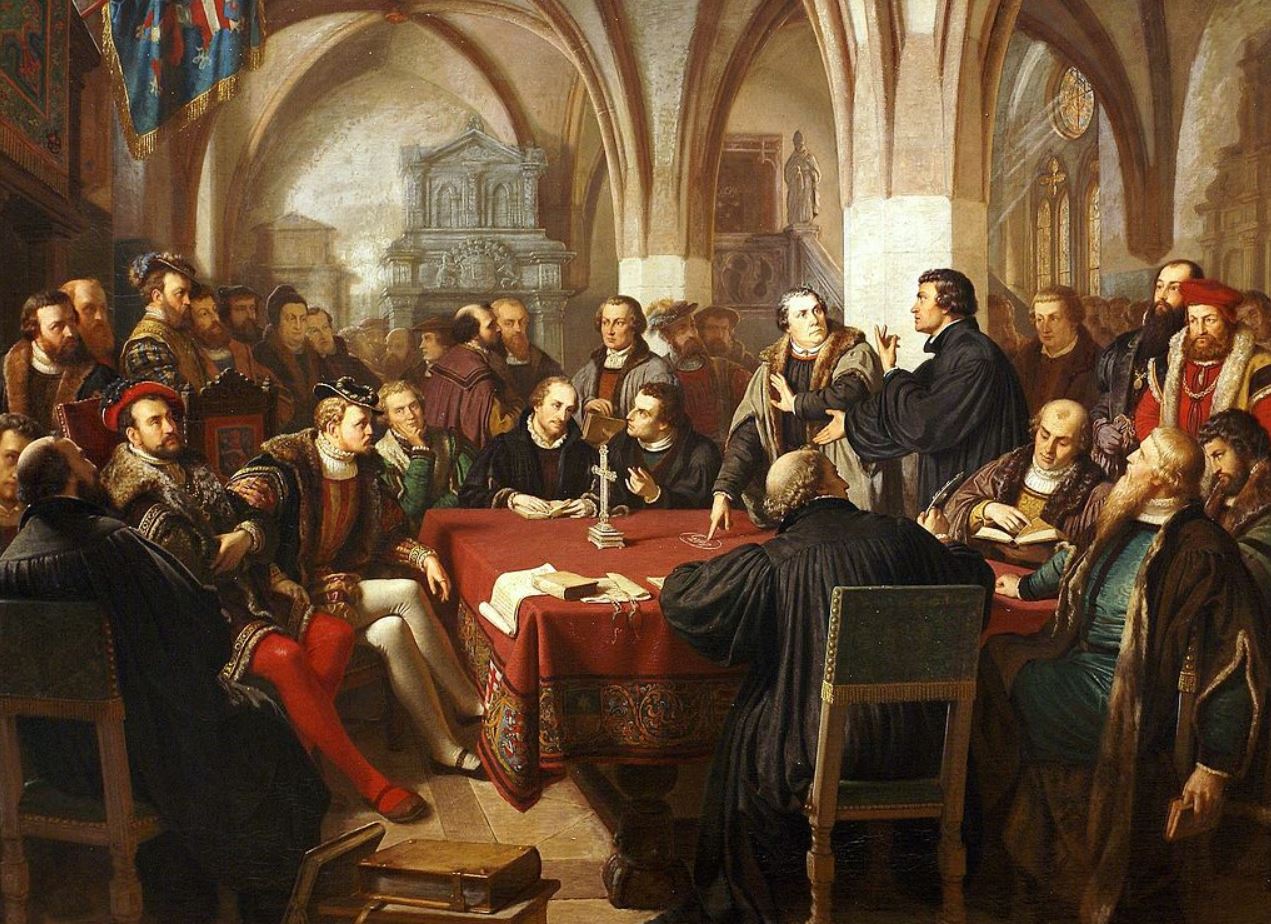
Marburg Colloquy (conference)
Marburg Conference
From October 1-4, 1529, Philip I of Hesse sponsored the Marburg Colloquy (conference), at the Marburg Castle, in Marburg, Germany. Phillip’s purpose was to unite the Protestants in a political alliance, and to do this he knew religious harmony was a vital component.
Present at this conference were Martin Luther, Zwingli, and about 9 other prominent reformers. The 15 articles that were discussed were all agreed upon by Luther and Zwingli, with the exception surrounding the topic of the Lord’s Supper. Zwingli held that communion was but a memorial of Christ’s death, whereas Luther held that the real presence of Christ was in the bread and wine. This has been a divisive subject among Protestants ever since.
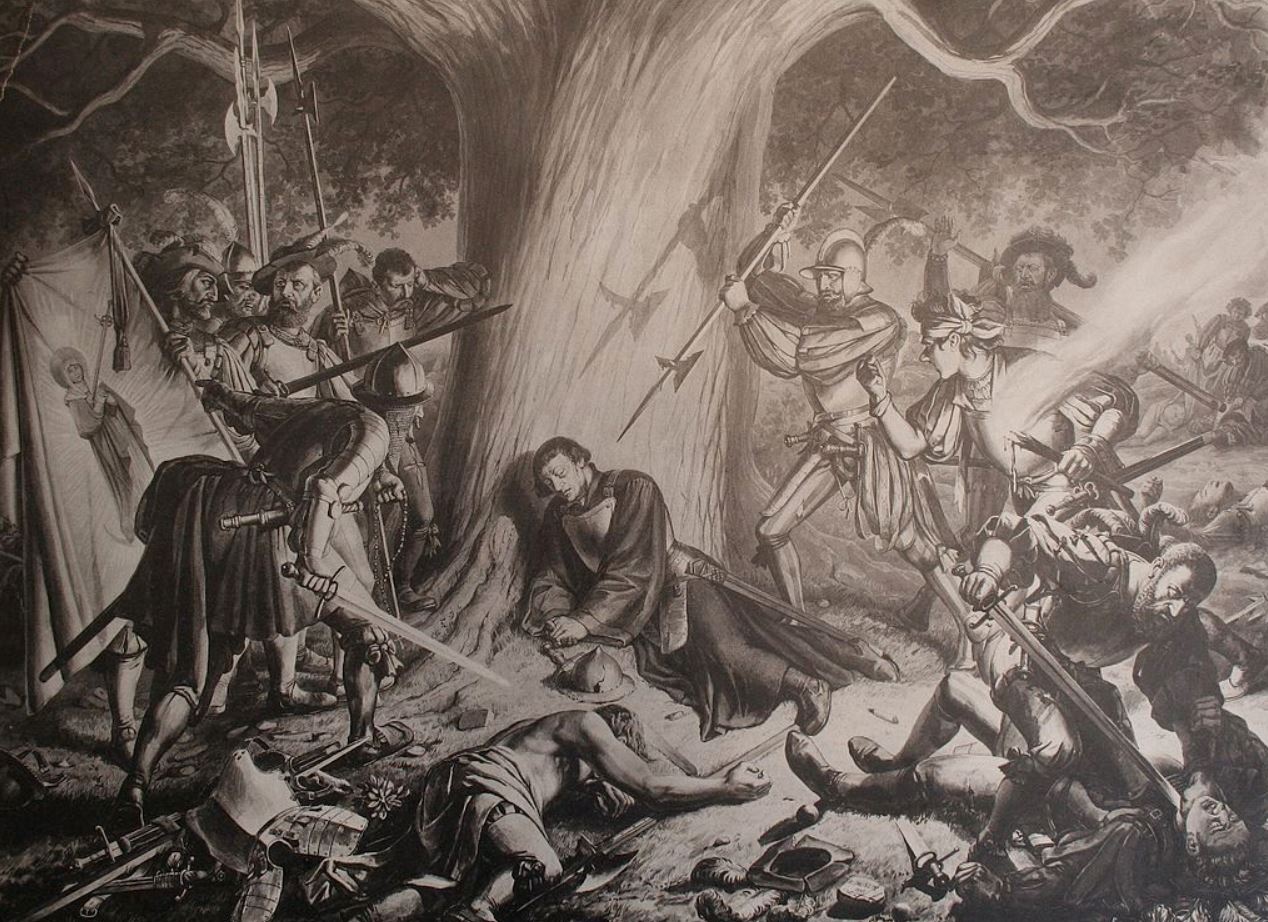
Ulrich Zwingli’s death on the battlefield
Zwingli and Politics—Political and Religious Unity
Switzerland was a confederation of 13 states. Zwingli’s reformation spread to other states, and his goal was to get the Protestant states to unite in an alliance against the five desiring to remain Catholic.
Zwingli’s effort to force his faith on the Catholic states ultimately ended in war. On October 9, 1531, the five Catholic states declared war on Zürich. Zürich was unprepared, and on October 11, 3,500 poorly prepared men encountered a force nearly double their size near the town of Kappel. Many pastors, including Zwingli, were among the soldiers. The battle lasted less than one hour, and Zwingli, quartered for treason and burned for heresy, was among the 500 casualties.
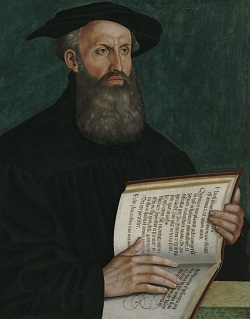
Heinrich Bullinger
Successor to Zwingli
Zwingli’s Successor
Two months after Zwingli’s death, the Zurich council choose Heinrich Bullinger (1504-1575) as Zwingli’s successor. He was able to stabilize the confederation of Protestant states and help them recover from the defeat at Kappel.
As a theologian, Bullinger had wide-reaching influence, with some historians considering him to be one of the most influential in the English Reformation.
Sources
► Four Reformers: Luther, Melanchthon, Calvin, Zwingli by Kurt Aland
► Huldrych Zwingli by Wikipedia
► Mountain Boy of Wildhaus by David Van Horne
► The Life of Ulric Zwingli by Jean Grob
► Ulrich Zwingli, The Patriotic Reformer by Wm. M Blackburn
► The Swiss Giant: Ulrich Zwingli by Travis Myers
► The Ten Greatest Revivals Ever by Elmer Towns
► Zwingli: An Introduction to His Thought by W.P. Stephens
► Zwingli’s Sixty-Seven Articles by Christian History Institute
Return to List of Revival Stories
Chet & Phyllis Swearingen
(260) 920-8248
romans1015@outlook.com
Beautiful Feet
P.O. Box 915
Auburn, IN 46706

